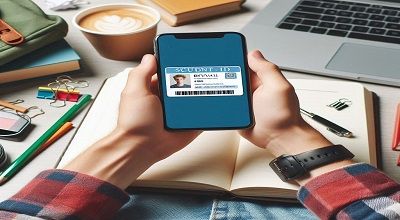Use of Mobile Phones for Students
Here, What is the Use of Mobile Phones for Students? Mobile phones can serve various purposes for students, both in and outside of the classroom. Here are some of the common uses of mobilephones for students:
- Communication: Mobile phones allow students to stay in touch with family, friends, and classmates. They can make calls, send text messages, or use various messaging apps to communicate efficiently.
- Research and Information Access: Students can use their mobilephones to access the internet and search for information related to their studies. This can be particularly helpful for quick reference, looking up facts, or finding online resources.
- Educational Apps: There are numerous educational apps available for students. That can help with learning, including language learning apps, math and science apps, and educational games.
- Organization and Time Management: Mobile phones come with various apps and features that can help students stay organized. They can set reminders, create to-do lists, and manage their schedules effectively.
- E-Books and Digital Resources: Many students use mobile devices to access digital textbooks and other educational materials. Which can be more convenient and environmentally friendly than traditional printed books.
Extra Common Uses of Mobile Phones
- Note-Taking: Students can take notes during lectures or study sessions using note-taking apps on their mobilephones. Which can be synced across multiple devices for easy access and review.
- Access to Learning Management Systems: Many educational institutions use learning management systems (LMS) or class-related apps. Students can access through their mobile devices to check grades, submit assignments, and participate in online discussions.
- Multimedia Learning: Mobile phones can be used to capture photos and videos. Can be valuable for recording experiments, documenting field trips, or creating multimedia presentations.
- Language Learning: Students interested in learning a new language can use language-learning apps and tools on their mobilephones to practice vocabulary, pronunciation, and grammar.
More here…
- Collaboration: Mobilephones enable students to collaborate with their peers on group projects. Share documents, and participate in virtual meetings or study groups.
- Emergency Assistance: In case of emergencies or urgent situations. Students can use their mobile phones to contact authorities, campus security, or medical services.
- Accessibility Features: Mobile phones often come with accessibility features. Such as text-to-speech, voice recognition, and screen readers that can assist students with disabilities in their learning.
- Entertainment and Relaxation: While not directly related to academics, mobilephones can also provide students with entertainment and relaxation during breaks, helping to reduce stress.
Use of Mobile Phones
It’s important for students to use mobilephones responsibly and avoid distractions when studying or attending classes. Schools and universities often establish policies and guidelines regarding mobile phone usage on their premises to ensure that they are used for educational purposes effectively.
